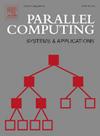FastPTM:快速加载预训练模型的权重以提供并行推理服务
IF 2.1
4区 计算机科学
Q2 COMPUTER SCIENCE, THEORY & METHODS
引用次数: 0
摘要
预训练模型(PTM)在各种 NLP 和 CV 任务中取得了巨大成功,并已成为深度学习领域的一项重要发展。然而,与 PTM 相关的大内存和高计算要求会增加推理的成本和时间,从而限制了其在实际应用中的服务提供。为了通过减少等待和响应时间来提高 PTM 应用的服务质量(QoS),我们提出了 FastPTM 框架。这个通用框架旨在通过减少 GPU 上的模型加载时间和切换开销来加速多租户环境中的 PTM 推断服务。该框架利用基于 PTM 权重和模型分离的快速权重加载方法,在资源受限的环境中有效加速并行推理服务。此外,还设计了一种在线调度算法来缩短推理服务时间。实验结果表明,FastPTM 可以将推理服务的吞吐量平均提高 4 倍,最高可达 8.2 倍,同时将切换次数减少 4.7 倍,超时次数减少 15.3 倍。本文章由计算机程序翻译,如有差异,请以英文原文为准。
FastPTM: Fast weights loading of pre-trained models for parallel inference service provisioning
Pre-trained models (PTMs) have demonstrated great success in a variety of NLP and CV tasks and have become a significant development in the field of deep learning. However, the large memory and high computational requirements associated with PTMs can increase the cost and time of inference, limiting their service provisioning in practical applications. To improve the Quality of Service (QoS) of PTM applications by reducing waiting and response times, we propose the FastPTM framework. This general framework aims to accelerate PTM inference services in a multi-tenant environment by reducing model loading time and switching overhead on GPUs. The framework utilizes a fast weights loading method based on weights and model separation of PTMs to efficiently accelerate parallel inference services in resource-constrained environments. Furthermore, an online scheduling algorithm is designed to reduce the inference service time. The results of the experiments indicate that FastPTM can improve the throughput of inference services by an average of 4x and up to 8.2x, while reducing the number of switches by 4.7x and the number of overtimes by 15.3x.
求助全文
通过发布文献求助,成功后即可免费获取论文全文。
去求助
来源期刊

Parallel Computing
工程技术-计算机:理论方法
CiteScore
3.50
自引率
7.10%
发文量
49
审稿时长
4.5 months
期刊介绍:
Parallel Computing is an international journal presenting the practical use of parallel computer systems, including high performance architecture, system software, programming systems and tools, and applications. Within this context the journal covers all aspects of high-end parallel computing from single homogeneous or heterogenous computing nodes to large-scale multi-node systems.
Parallel Computing features original research work and review articles as well as novel or illustrative accounts of application experience with (and techniques for) the use of parallel computers. We also welcome studies reproducing prior publications that either confirm or disprove prior published results.
Particular technical areas of interest include, but are not limited to:
-System software for parallel computer systems including programming languages (new languages as well as compilation techniques), operating systems (including middleware), and resource management (scheduling and load-balancing).
-Enabling software including debuggers, performance tools, and system and numeric libraries.
-General hardware (architecture) concepts, new technologies enabling the realization of such new concepts, and details of commercially available systems
-Software engineering and productivity as it relates to parallel computing
-Applications (including scientific computing, deep learning, machine learning) or tool case studies demonstrating novel ways to achieve parallelism
-Performance measurement results on state-of-the-art systems
-Approaches to effectively utilize large-scale parallel computing including new algorithms or algorithm analysis with demonstrated relevance to real applications using existing or next generation parallel computer architectures.
-Parallel I/O systems both hardware and software
-Networking technology for support of high-speed computing demonstrating the impact of high-speed computation on parallel applications
 求助内容:
求助内容: 应助结果提醒方式:
应助结果提醒方式:


